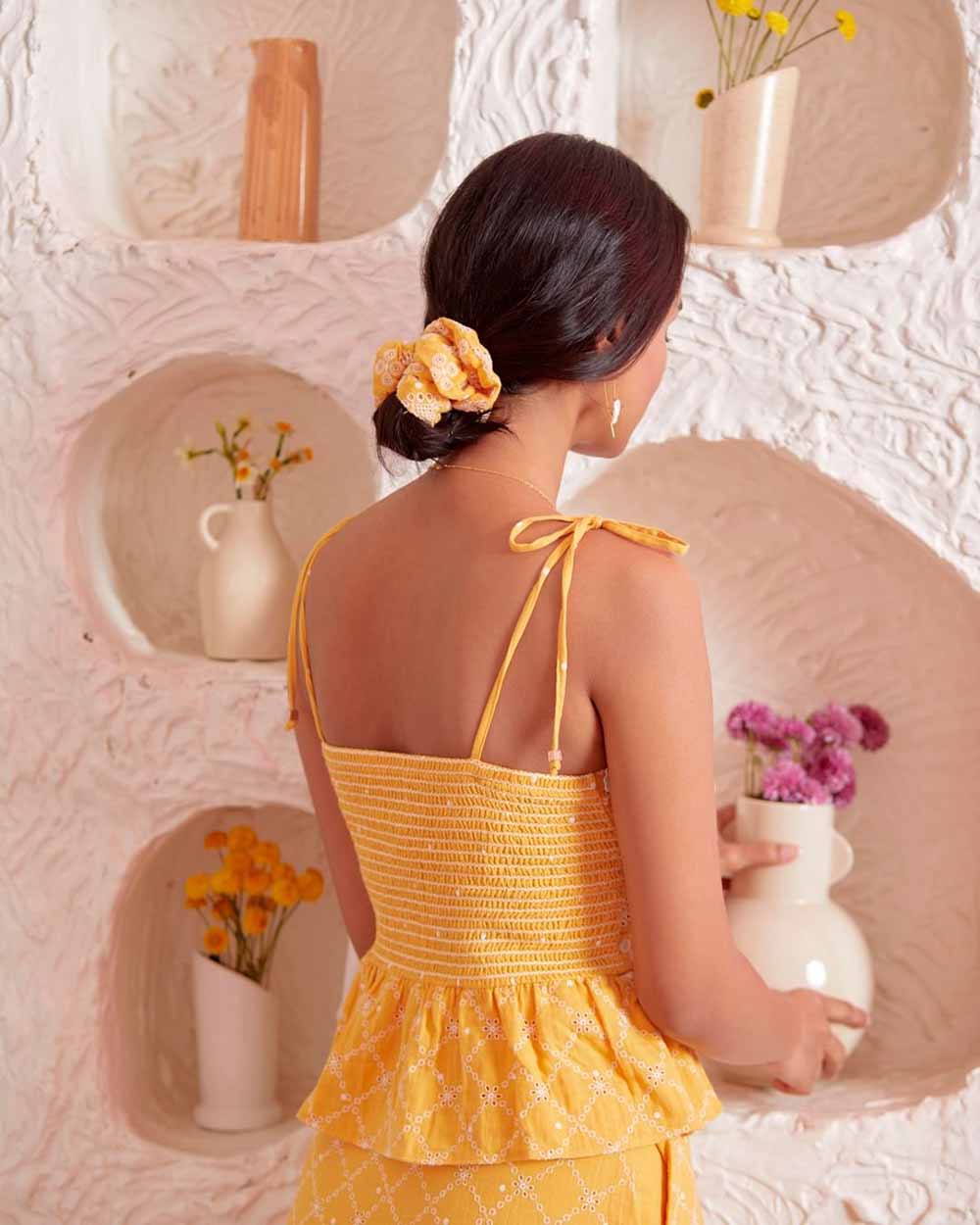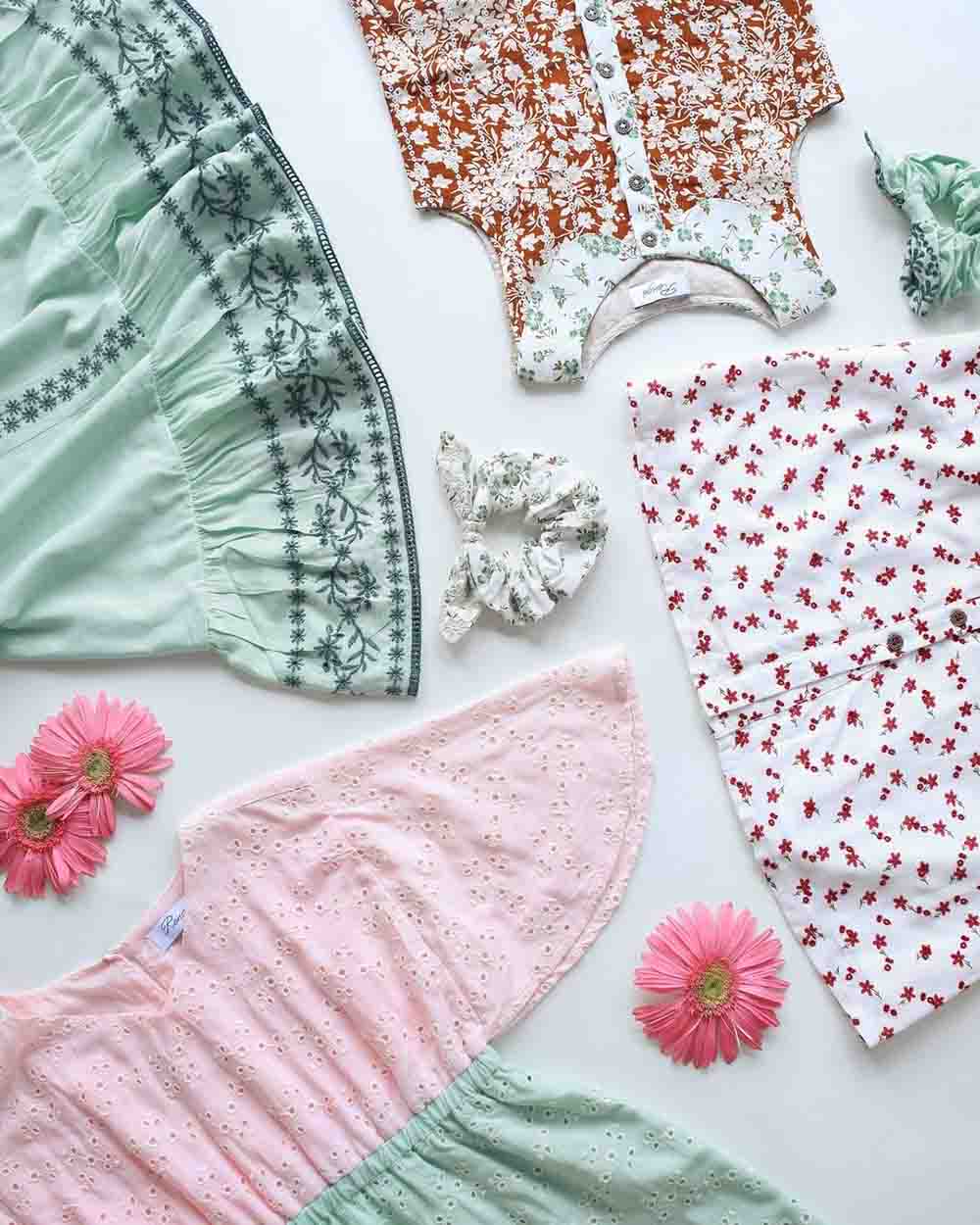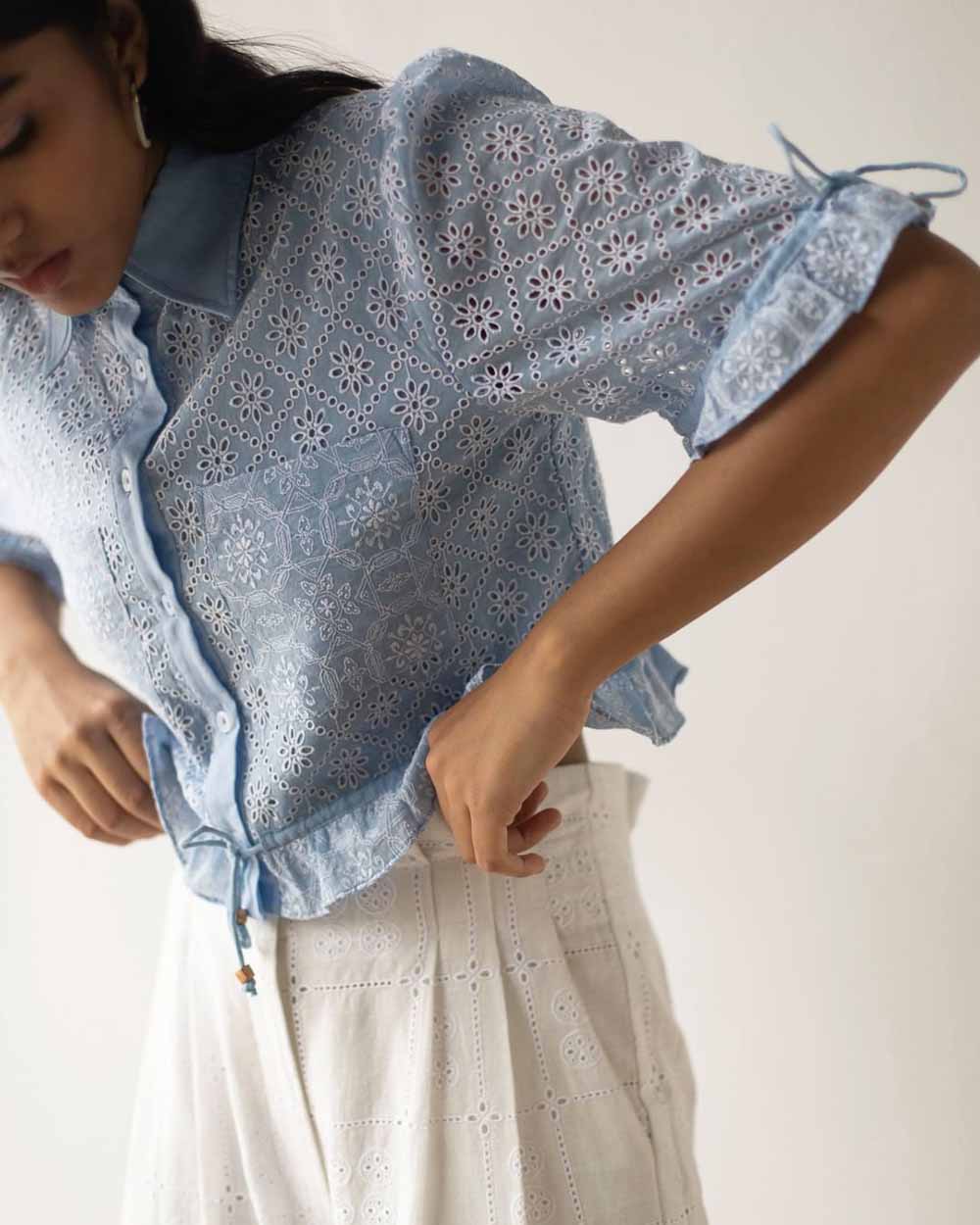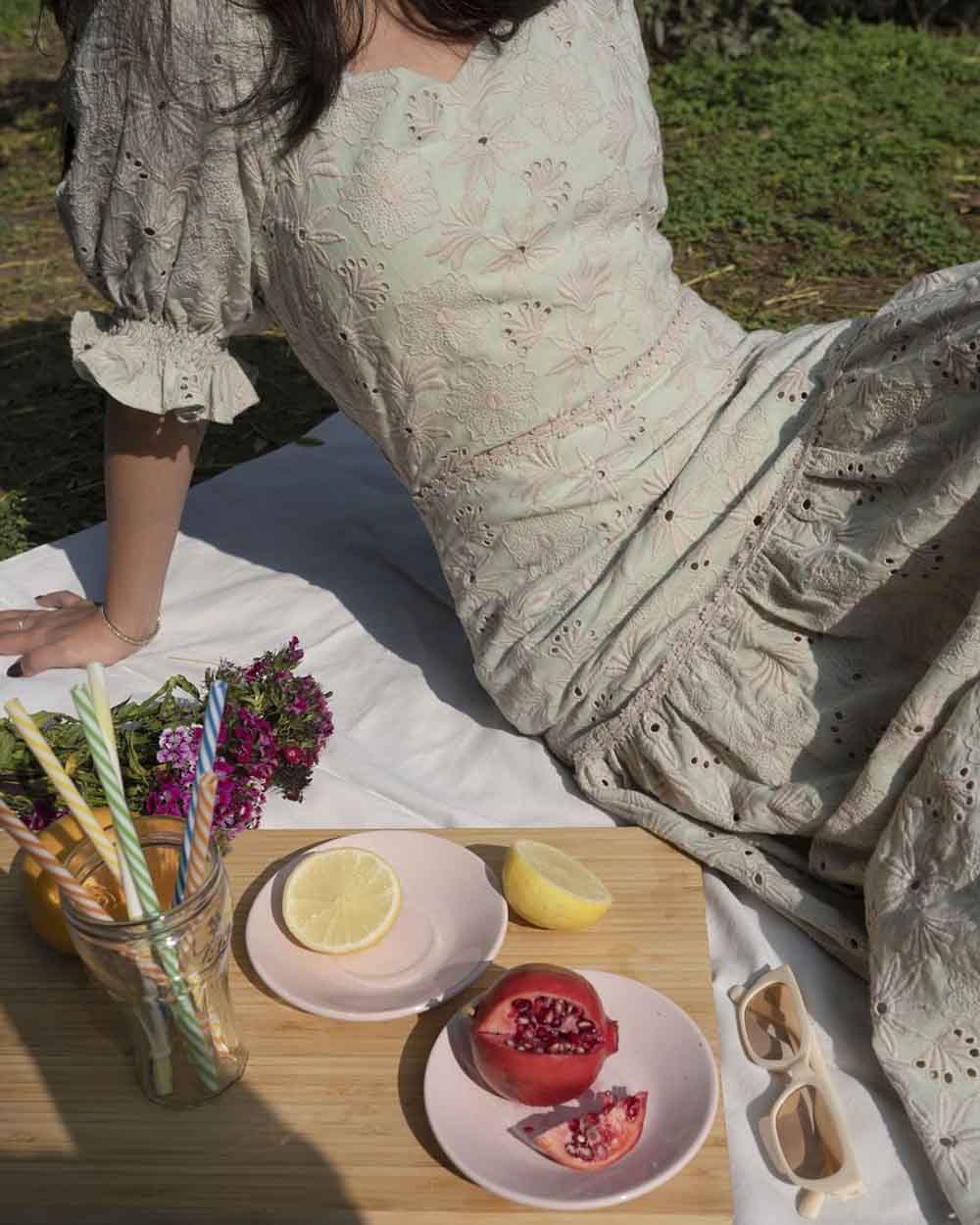As we move towards a fashion space that is witnessing innovations with sustainable production techniques, plant-based materials as well as more sustainable lab-grown alternatives, sustainability is undoubtedly going to be at the fashion forefront until the customer sees a change. While brands using sustainable materials help reduce fashion’s collective carbon footprint, brands like Rengé are finding unique ways to reduce wastage caused by the industry. The brand’s designs are made from upcycled surplus fabric, using prints, embroideries and interesting details. We speak to the brand’s founder, Sheena Uppal about what it entails to reverse the creative process without compromising on style, design, quality and what the customer wants.

Image Source: Instagram/renge_india
Role Reversal
Uppal explains how it is a flip way of working as opposed to the conventional process. “We look at the fabrics and then I have a reverse way of working, where I then plan my collection around- Okay this will give me that kind of fall, that kind of hand feel etcetera. I also personally work better that way,” she says. The entrepreneur, who studied fashion marketing, regards herself as a more visual person, making it easier for her to design for the brand. “I know a lot of brand focus on sustainable fabrics, like hemp and bamboo, which is amazing. But it just doesn’t fit in our price point,” says Uppal, explaining Rengé’s choice of surplus fabrics.
Passionate about fashion and production, Uppal initially started Rengé as a fashion project which eventually grew into the sustainable brand it is today. “From the beginning the idea was to not sit on inventory, she adds, “We only produce what is ordered. So that was a very important business model for us to follow. What that means is also that when somebody places an order it’s not like instant gratification that it’s necessarily shipped out within 24 hours.”
However, upcycling doesn’t end with the products the brand makes. “If I’m working with surplus fabrics and making things to order, what that means is that I’m constantly being able to upcycle, within my own fabric requirements,” says Uppal. In case of certain surplus fabrics that don’t end up making the cut for the brand’s designs, Uppal is able to use it for other products and uses the brand may have, thanks to its made to order model.

Image Source: Instagram/renge_india
For The Client
At Rengé, all processes happen within a three-kilometre radius, making the products even more sustainable as they don’t have to travel too far to be produced. The brand goes on to update its customers about the team’s week on the workshop front, even giving updates about progressions made by karigars. This leaves the audience with a whole lot of transparency about where the garment is coming from, something missing amongst bigger brands. But that’s not all when it comes to knowing what the customer wants from the brand. When it comes to designs and styles, Uppal opens up about the journey through the years and incorporating the customer’s needs. “Another thing that’s been really important to us as a brand is to understand what our clients want. I think when I started out it was a passion project so it was really just designs that I would like to wear but today we’re at a point where we have to think about the body types we want to target or – this is a certain type of woman, she might want access to full sleeves, she might want a certain type of neckline,” she explains.

Image Source: Instagram/renge_india
Giving Back To The Environment
Besides her passion for sustainability in fashion and the environment, Uppal, an ardent animal lover, uses her brand to give back to animals in need. “One of the things we do at Rengé, because I am a massive animal lover, I’ve sort of brought these two worlds of stray animals and fashion. We do a lot of spaying and neutering work in and around where we live,” she adds, “Rengé supports a lot of CSR activities and NGOs that work for animals.” In the past few years, the brand has helped neuter over 600 dogs through Delhi-based animal organisation Friendicoes.
Advice For Budding Entrepreneurs
“I think it’s always important to start small. I think it’s important to understand that you need to start it small because you’ll only understand who you’re selling to, what your customer wants, at the end of the day with experience,” advises Uppal. “If you’re trying to start a small brand, shoot the clothes you’re making on your friends, create amazing content. That’s what it is today. Content is key; messaging is key,” she adds.

Image Source: Instagram/renge_india